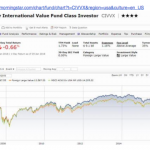Founded in 1911, International Business Machines (IBM) is one of the world’s oldest tech companies. Today IBM is the largest IT provider (5.5% global market share) for businesses around the world. It operates in five main business segments.
The company has been in a multi-year turnaround where it is refocusing its business from legacy hardware and IT software to what it calls “strategic imperatives,” or SI. These are increasingly subscription-focused cloud computing, advanced AI data analytics applications, and cyber security products that IBM believes represent the future of global IT.
SI accounted for 46% of IBM’s total revenue in 2017 and grew 11%. Cloud revenue represents 22% of total sales and grew 24% last year. The company also has strategic partnerships with ABB, a Swiss-Swedish robotics and automation company, as well as Salesforce.com, a leading cloud computing service provider.
Business Analysis
IBM has long been known for its legacy IT services, which have been the backbone of corporate IT departments around the world for decades. This created a highly stable and recurring revenue source since there are huge challenges with switching IT vendors, including the potential for meaningful business disruption that most companies would rather not face.
Warren Buffett infamously invested in the stock in 2011 for many of these reasons. Although he has since changed directions and is in the process of exiting his position, his familiarity with IBM goes back a long ways – he says he has read every annual report since 1961.
His public comments suggest he was most attracted to IBM’s trusted brand name and the stickiness of its customer relationships:
“I imagine as you go around the world that there are – there’s a fair amount of presumption in many places that if you’re with IBM, that you stick with them, and that if you haven’t been with anybody, you’re developing things, that you certainly give them a fair shot at the business.”
“The IT departments, you know, we’ve got dozens and dozens of IT departments at Berkshire. I don’t know how they run. I mean, but we went around and asked them and you find out that there’s – they very much get working hand in glove with suppliers. And that doesn’t mean things won’t change but it does mean that there’s a lot of continuity to it… Now, I would imagine if you’re in some country around the world and you’re developing your IT department, you’re probably going to feel more comfortable with IBM than with many companies.”


















Leave A Comment